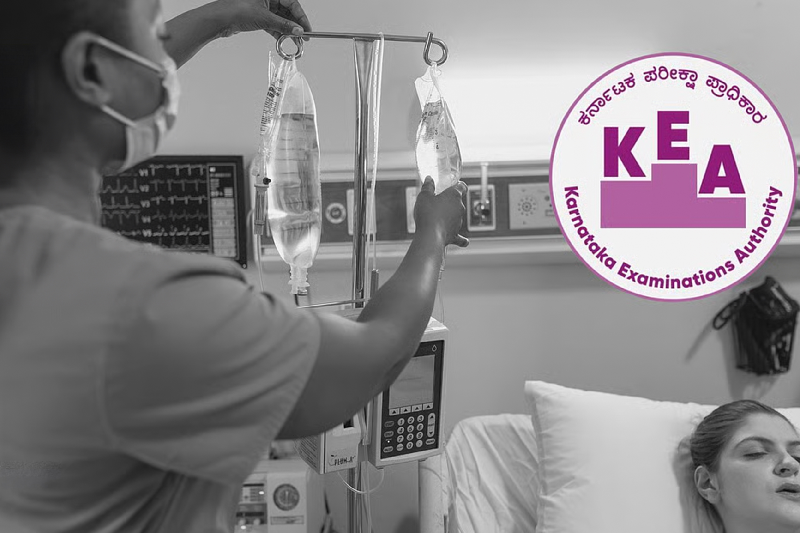
165 Nursing Colleges in Karnataka Record Zero Admissions in KEA Round 1: A Wake-Up Call for the Sector
The nursing education sector in Karnataka is facing a critical juncture. In the first round of counselling conducted by the Karnataka Examinations Authority (KEA) for the academic year 2025-26, 165 nursing colleges received zero admissions, raising serious concerns about student interest, infrastructure, and institutional credibility.
Of the 675 nursing colleges across the state, 26 institutions did not receive any seat allotments during the first counselling round, and 139 others failed to see even a single student actually join after allotment. These numbers are reflective of a growing mismatch between the supply of nursing education seats and the current demand.
Disproportionate Distribution of Admissions
The data reveals a skewed trend in admissions:
- Only 150 colleges are in high demand.
- 358 colleges saw a minimal enrollment, with only 1 to 10 students each.
- 66 colleges managed to attract 10–20 students.
- 49 colleges had 20–30 students enrolling.
- 41 institutions registered between 30 and 60 admissions.
Only two colleges — Fr Mullers College of Nursing and Kanachur College of Nursing Sciences, both located in Mangaluru — recorded more than 100 student admissions in this round. Another 13 colleges had enrollments ranging from 60 to 100 students.
Admissions vs. Intake: A Startling Gap
Karnataka’s total nursing seat intake stands at 31,726 for the academic year. However, in the first round of KEA counselling:
- Only 15,185 seats were allotted.
- Of these, just 6,292 students confirmed their selection by opting for Choice 1, indicating their willingness to report to the respective colleges.
- A marginally lower number, 6,265 students, went ahead and paid the requisite fees.
This significant drop between the total capacity and actual filled seats underscores the declining demand for nursing education — especially in private institutions.
Why the Decline? Key Factors Behind the Slump
1. Rising Preference for Government Colleges
According to Shivkumar S, president of the Karnataka State Association of Managements of Nursing and Allied Health Science Institutions, there has been a notable decline in student interest toward private nursing colleges. One of the key reasons is the increase in intake capacity across government colleges, which are more affordable and generally considered more reliable.
Consequently, students from Karnataka are increasingly opting for these government-run institutions, leaving many private colleges without enrolments.
2. Shrinking Out-of-State and International Student Base
Private colleges in Karnataka have historically relied on students from outside the state and abroad. Shivkumar S highlighted that:
- The current student base is largely limited to those from Kerala, Bhutan, and Nepal.
- Earlier, a significant number of students hailed from West Bengal, especially Kolkata. But the state has now established its own nursing colleges, leading to a drop in outbound students heading to Karnataka.
Infrastructure Deficiencies: A Major Turn-Off
An official from KEA revealed that infrastructure issues are plaguing several colleges, deterring prospective students. Key problems include:
- Inaccurate college listings: Students reported that some institutions couldn’t even be located based on the address provided in the official seat matrix.
- Misleading practices: Some colleges, after being allotted students, demanded additional money during campus visits, pushing students away.
- Substandard facilities: Several institutions lacked even basic infrastructure, disappointing students and parents alike during in-person visits.
These issues not only damage the reputation of individual institutions but also cast a shadow on the nursing education system in the state.
Policy Gaps and Oversupply of Seats
The Rajiv Gandhi University of Health Sciences (RGUHS) had earlier proposed a moratorium on the establishment of new nursing colleges for the academic year, in an attempt to balance the supply-demand ratio. However, the plan was eventually scrapped, and new institutions that met the minimum criteria were allowed to open.
This decision contributed to the oversupply of nursing seats. RGUHS Vice-Chancellor Bhagavan BC defended the move by stating that:
- The current scenario is not alarming, as the number of colleges and seats increased simultaneously this year.
- A similar trend has been seen in other Indian states, pointing to a nationwide saturation in the nursing education sector.
Conclusion: An Industry at Crossroads
The outcome of the first round of KEA counselling has clearly exposed several systemic issues within Karnataka's nursing education ecosystem:
- Overdependence on out-of-state students.
- Infrastructure and transparency shortcomings.
- Oversaturation of colleges without quality checks.
- A perceptible shift in student preference toward government institutions.
While authorities like KEA and RGUHS maintain that the situation is under control, the numbers paint a stark picture. If left unaddressed, this growing disinterest could lead to a crisis in private nursing education, impacting not just institutions but also healthcare workforce planning in the state.
As Karnataka moves into subsequent counselling rounds, it will be critical to monitor if and how the trends shift — and whether regulatory action will be taken to realign nursing education with current demand and quality expectations.



